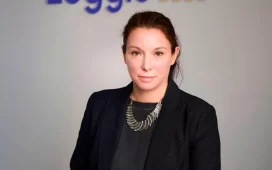The governor of the Bank of England has accused retailers of putting further strain on households by overcharging consumers on petrol and other goods at a time when UK authorities are struggling to curb inflation.
Andrew Bailey suggested unnecessarily high fuel prices would have to be tackled in order to help bring inflation – which is above 8% – back to the Bank’s 2% target and give some relief to UK families struggling with the cost of living.
“If you look at petrol prices, some sellers of petrol have possibly been charging too much for it,” he told the BBC’s Newsround programme in an interview broadcast on Thursday. He added that action by regulators including the Competition and Markets Authority (CMA) was helping to subdue high inflation but it was fairer if possible overcharging was “tackled”.
Bailey’s comments will heap further pressure on petrol retailers, which the energy secretary, Grant Shapps, accused this week of using motorists as “cash cows” after the CMA found fuel sellers were charging more because of reduced competition since the Covid crisis.
Watchdogs including the CMA have also been working with government, and last week agreed to a series of measures aimed at protecting consumers from being ripped off.
Concerns have been growing about wider “greedflation” – whereby companies use high inflation as a cover to hike prices even further to increase profit margins. The government has now instructed regulators to crackdown on unfair price hikes across the country.
Bailey said greedflation was “having very difficult effects. So it’s important that these steps that can be taken to make things fairer, and to save money for people by doing so, are taken.”
The Bank of England has raised interest rates to 5% – the highest since 2008 – a move Bailey said was necessary to curb price inflation in general, even though it put further pressure on borrowers.
“It’s hard and I think I understand very much the difficulties that people face. Unfortunately, this is how we have to get inflation down. And what I will say is if we don’t get inflation down, if it keeps going on, it gets worse … and we’ll have to put interest rates up more,” he said.
after newsletter promotion
While inflation has already started to ease, Bailey said rates were only expected to drop back down towards the 2% target the end of next year.
“We have a target that prices should rise by no more than 2%. It is above that, at about 8% at the moment. And I understand this is difficult for people who are having to make very difficult choices about what they buy what they need for their lives,” he said.









